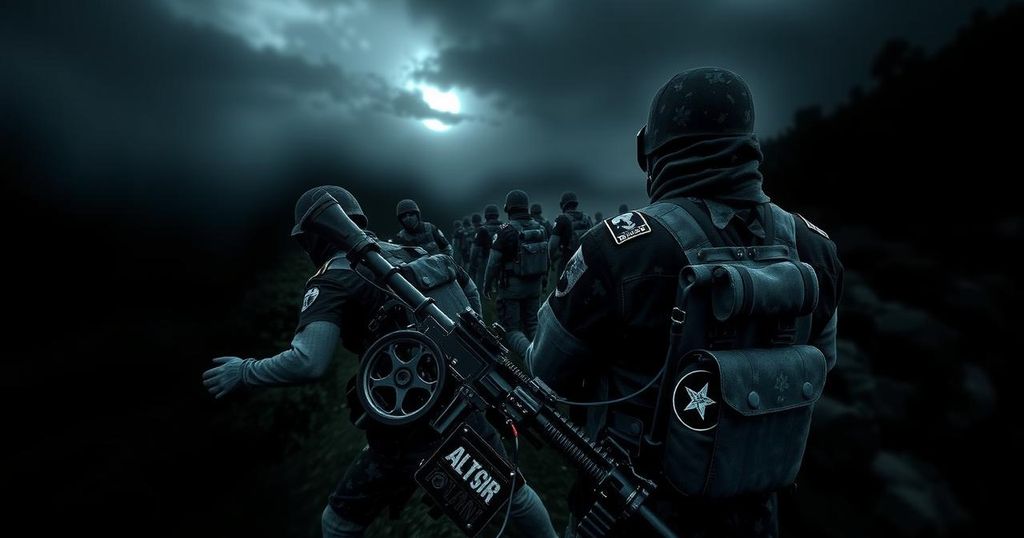The Unaddressed Legacy of Indonesia’s Aceh Conflict: A Decade of Neglect

Amnesty International has condemned Indonesia’s ongoing neglect of Aceh conflict victims on the tenth anniversary of the peace agreement. Despite ending violence, the government has not provided truth, justice, or reparations for the tens of thousands affected. Efforts to establish a truth commission and pursue justice for past abuses remain stalled, exacerbating a climate of discontent and unresolved grievances among victims and their families.
As Indonesia marks the tenth anniversary of the peace agreement that concluded the Aceh conflict, Amnesty International has expressed deep concern that the Indonesian government continues to neglect the needs of tens of thousands of victims and their families. Despite the cessation of violence, the authorities have largely failed to offer truth, justice, and reparation, leaving many families still searching for information about their missing loved ones. Josef Benedict, Amnesty’s Campaigns Director for Southeast Asia, emphasized that this anniversary should catalyze meaningful collaboration aimed at addressing these profound injustices in Aceh. The decades-long conflict, which resulted in the deaths of between 10,000 and 30,000 individuals, predominantly civilians, concluded with the 2005 peace agreement. This agreement, endorsed by international observers, included commitments for addressing past human rights abuses. However, after ten years, the victims remain unacknowledged, as efforts to establish a truth commission and pursue justice have seen little progress. A partial bylaw was created for a local Truth and Reconciliation Commission, yet implementation has stalled. Despite some investigative efforts, such as those by the National Human Rights Commission, a widespread acknowledgment of human rights violations remains elusive. Evidence suggests that numerous abuses committed against civilians could be classified as war crimes or even crimes against humanity, yet only a select few cases have been pursued in court, and virtually no perpetrators have been held accountable. The legal framework currently in place impedes victims’ access to judicial remedies, as Indonesia’s Criminal Code lacks recognition of international law violations. Reparation efforts so far have proven inadequate, failing to meet the comprehensive needs of victims, particularly women who suffered sexual violence. The Aceh Reintegration Agency, though established for compensation, has not effectively addressed the harm inflicted on many individuals during the conflict. Survivors and families continue to advocate for recognition of their suffering, urging the government to confront the painful history instead of allowing it to fade into oblivion. Josef Benedict further implores that the Indonesian government must urgently establish a truth commission that adheres to international standards, as the ongoing struggle for truth and justice is vital to healing the scars of the past. The lingering uncertainty faced by families of the disappeared fosters resentment and threatens to rekindle conflict in the region. Moreover, Amnesty International demands that the EU and ASEAN also take responsibility for ensuring the fulfillment of the peace agreement’s provisions.
In August 2015, Indonesia commemorated the ten-year anniversary of the peace agreement that concluded the Aceh conflict, a prolonged struggle between government forces and the pro-independence Free Aceh Movement, which led to significant human rights abuses. Amnesty International strongly criticized the Indonesian government for its failure to adequately address the needs of conflict victims, highlighting the absence of truth, justice, and reparations for those affected. This context underscores the dire need for accountability and response to the human rights violations that occurred within Aceh during the decades-long conflict.
The ongoing struggles of Acehnese victims mark the last decade as one of abandonment by the Indonesian government, which has yet to deliver on its promises of truth, justice, and reparation. The tenth anniversary of the peace agreement provides an opportunity for Indonesian authorities to confront their past, recognize historical injustices, and prioritize the establishment of effective reparatory mechanisms. Without such efforts, the wounds inflicted will continue to fester, and the prospect of renewed conflict remains a real threat.
Original Source: www.amnesty.org








